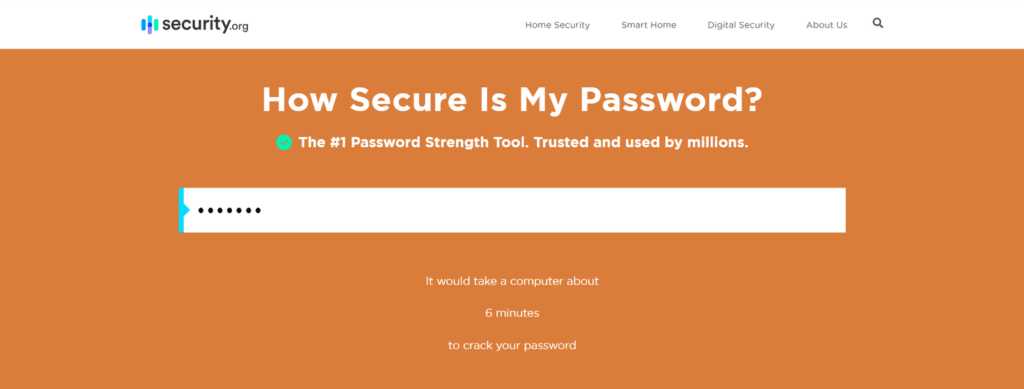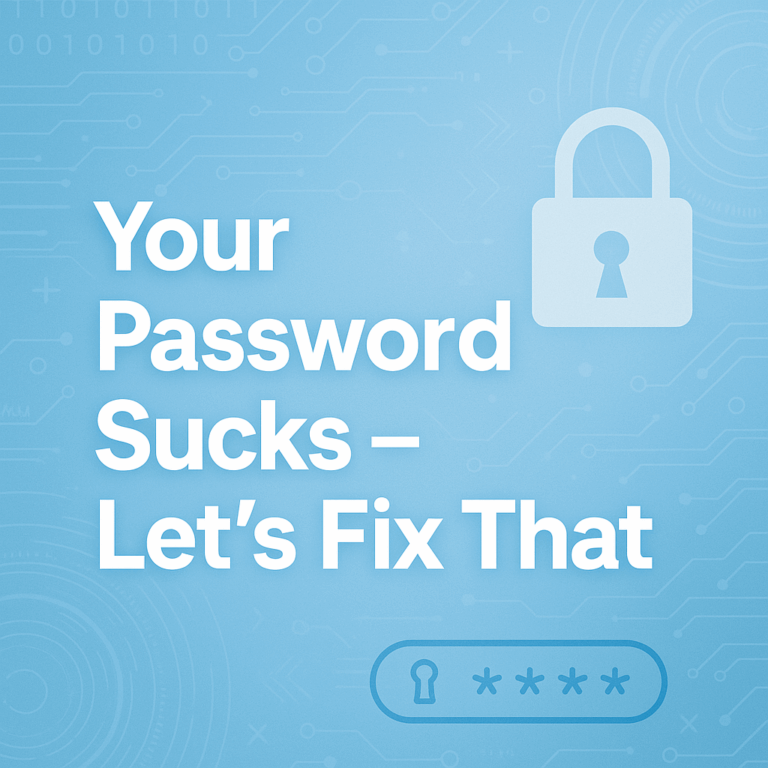Ever wondered what the most popular password in the world is? You’d think it’s something clever but it’s actually “123456.” This is a surprisingly weak password considering how crucial passwords are to the security of our digital assets.

Let’s think about it this way, if your online accounts were a house, your password would be the front door. Now imagine leaving that door wide open with a giant sign that says, “Come in and take whatever you want!”. That’s what using a weak or reused password is doing.
Cybercriminals aren’t trying to use sophisticated means to gain access to your account. No! The first thing they try is guessing common passwords.
However, you can make the attackers’ work harder by avoiding these 12 common password mistakes you might be making.
1. Using “123456” or “password”
These are the first guesses hackers try. If your password is on the list of the top 200 most common passwords, it might as well be public.
2. Using personal info
Your name, birthday, pet’s name, a favorite song, hobbies, address, and other personal info can be easy to guess. Hackers can guess this information from the content you or those close to you post on social media.
3. Not changing default passwords
Still using the default password for your router or smart device? You are not alone and hackers love that! The first thing you should always do is change the default login details of your apps or devices.
4. Reusing passwords across sites
We conveniently forget this one yet it is very important. Even if you are using a strong password, if it is part of a data breach, it can be used to access other accounts you’ve used it on. This is called a credential stuffing attack. You can simply avoid this by using a unique password for each account.
5. Adding “1” or “!” to weak passwords
You thought you were clever, right? Adding a letter or symbol to a weak password doesn’t make it strong. So put away those “password1”, “Anne3”, and “admin4” passwords.
6. Short passwords

Length matters! The shorter the password, the easier it is for hackers to guess it. Don’t believe me? Go to this website to check how fast a computer can crack different passwords. Try different password lengths and notice the difference.
7. Simple Keyboard patterns
Don’t use simple keyboard patterns like “qwerty”, “asdfjkl”, “zxcvbn”. They are easy to type and even easier to hack.
8. Saving passwords in your browser (without protection)
How many passwords have you saved on your browser? This might be convenient but also pretty dangerous. It means that anyone with access to your devices can automatically log in to all your accounts.
9. Writing them on sticky notes
Don’t write down your password on a sticky note. Physical notes are risky business, especially in shared spaces.
10. Using the same root password with slight changes
Does your workplace require you to change your passwords often? Have you devised a “clever” plan to use a root password and simply make slight changes to create a new one? Stop doing this.
“Kenya24$”, “Kenya25$”, “Kenya26$”…
If a hacker cracks one of the passwords, they’ll figure out the rest in no time.
11. Not using special characters
A strong password should contain a diverse set of characters including symbols. Include uppercase, lowercase, numbers, and symbols.
12. Thinking “It won’t happen to me!”
This mindset leads to complacency and lazy password habits. Hackers love this because it makes their work easier.
Staying away from these common password mistakes will ensure that your passwords are always secure. If you need more help, you can read this post to learn more about how to fix your password.
You can also download our free Password Fix Checklist and take control of your online security.

